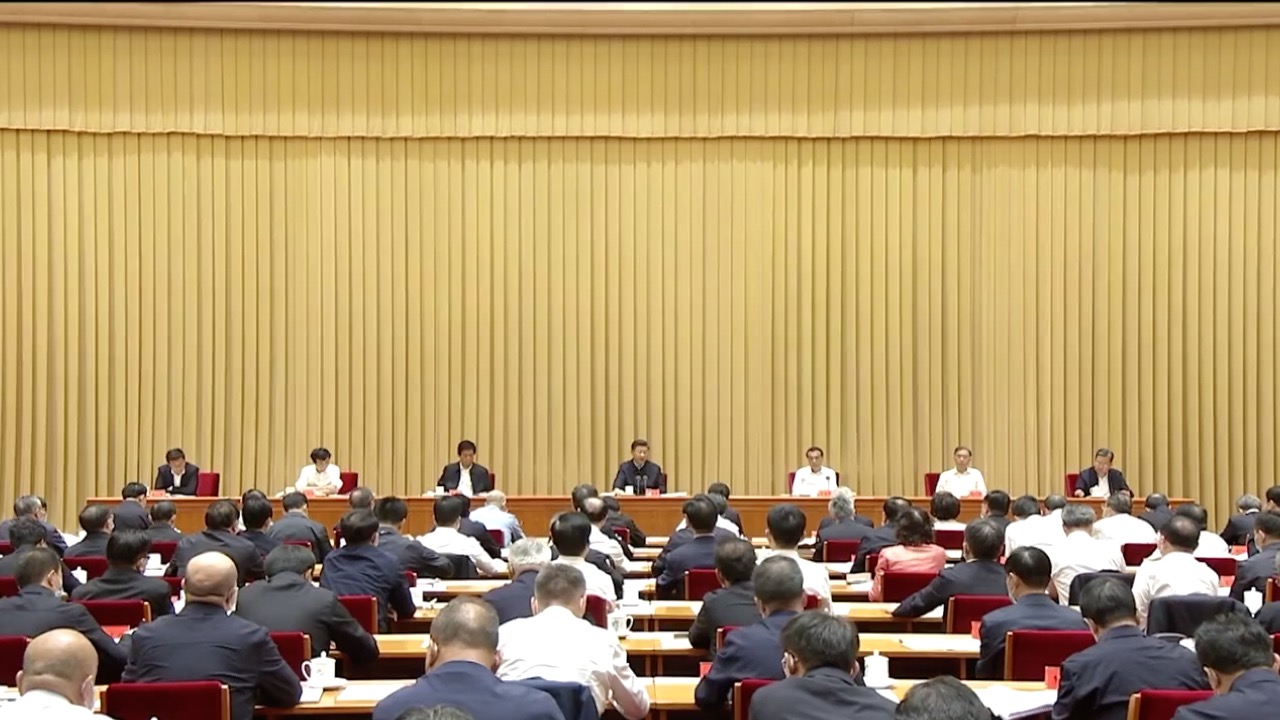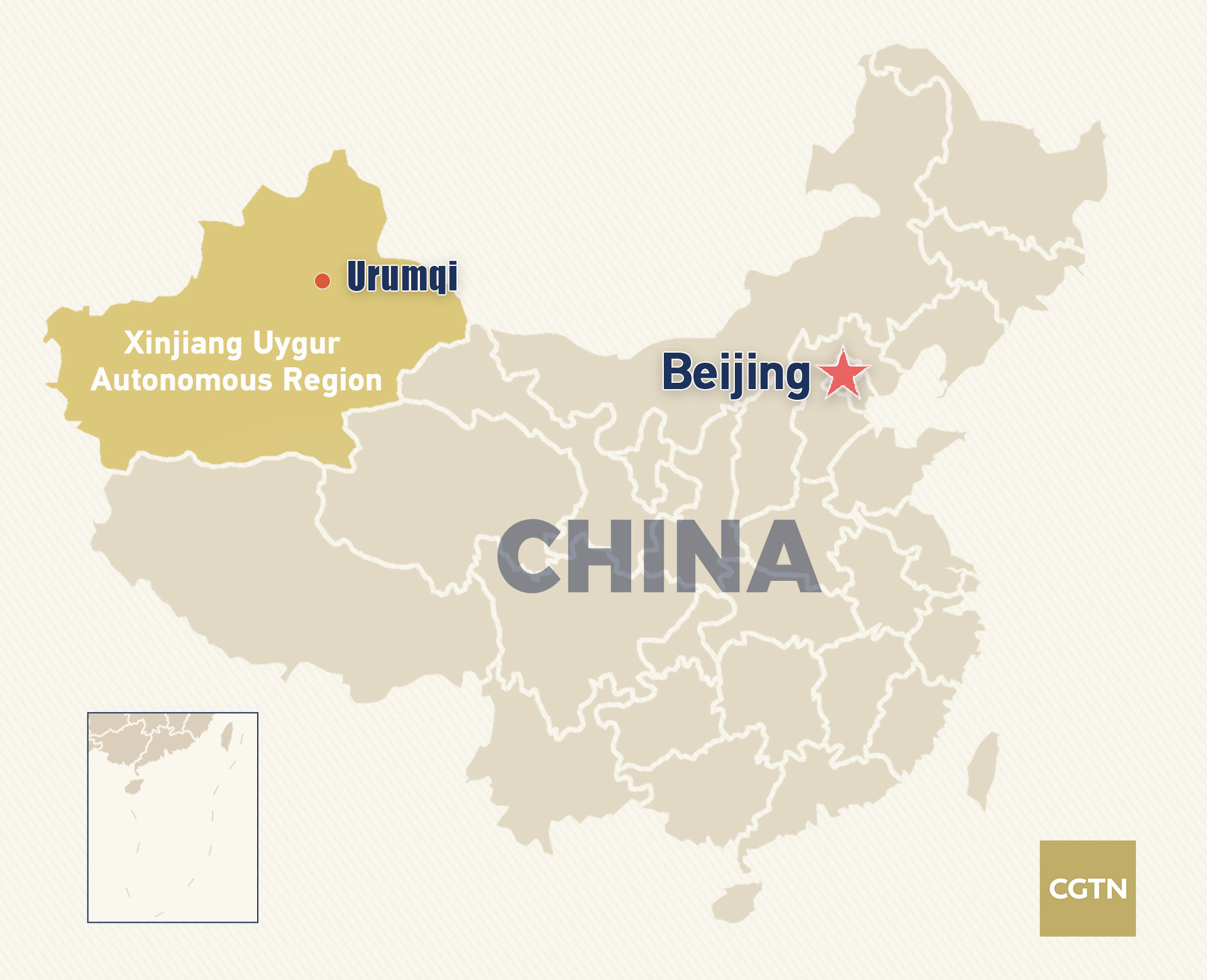00:50

From 2014 to 2019, overall statistics show that China's Xinjiang Uygur Autonomous Region has seen a positive trend in economic development and people's livelihoods have significantly improved.
Development is the crucial foundation for the region's long-term stability, said Chinese President Xi Jinping who called for efforts to build a socialist Xinjiang with Chinese characteristics in a new era.
Xi demanded law-based governance and long-term efforts to develop Xinjiang into a region that is united, harmonious, prosperous, and culturally advanced, with healthy ecosystems and people living and working in contentment.

Xi, also general secretary of the Communist Party of China (CPC) Central Committee and chairman of the Central Military Commission, made the comments at the two-day third central symposium on work related to Xinjiang, which ended in Beijing on Saturday.
He stressed the need to fully implement the CPC's policies and strategies on governing Xinjiang, which include governing in accordance with the law and maintaining stability in the region through ethnic solidarity.

Tourists visit Xinjiang International Grand Bazaar in Urumqi, Xinjiang Uygur Autonomous Region, northwestern China, October 5, 2019. /Xinhua
Tourists visit Xinjiang International Grand Bazaar in Urumqi, Xinjiang Uygur Autonomous Region, northwestern China, October 5, 2019. /Xinhua
Unprecedented progress in economic development
Xinjiang has made great achievements in its social and economic development and different groups of people in the region are having a stronger sense of achievement, happiness and security as their livelihoods significantly improved, Xi said.
Since the last central symposium on work related to Xinjiang, China has been strengthening support to the region both from the central government as well as other regions for helping its economic development, employment, education, healthcare and others.
Xinjiang's gross domestic product (GDP) has increased from less than 147 billion U.S. dollars in 2014 to 205 billion U.S. dollars by 2019, with an average yearly increase of 7.2 percent.
In mid-September, China released a white paper titled "Employment and Labor Rights in Xinjiang," which said that through proactive labor and employment policies, Xinjiang has continuously improved people's lives and guaranteed and developed their human rights in every field.
Advance poverty eradication
The Chinese president said that poverty eradication in Xinjiang had seen remarkable achievements as by 2019, almost three million people have been lifted out of poverty in the region, roughly one-seventh of its population.
Xi stressed the need to systematically carry out prevention and control work of the pandemic and social and economic development in Xinjiang with a focus on the work of poverty eradication and employment facilitation.
The mechanism for assistance and preventing a return of poverty needs to be improved while the development vitality has to be strengthened to ensure sustainable development after poverty eradication, he added.
All these facts have proved that China's ethnic work has turned out to be a success regarding the overall improvement of Xinjiang's development and people's livelihoods, Xi said, noting that the success is due to the combined results of strong leadership of the CPC Central Committee and concerted efforts of the Chinese people.